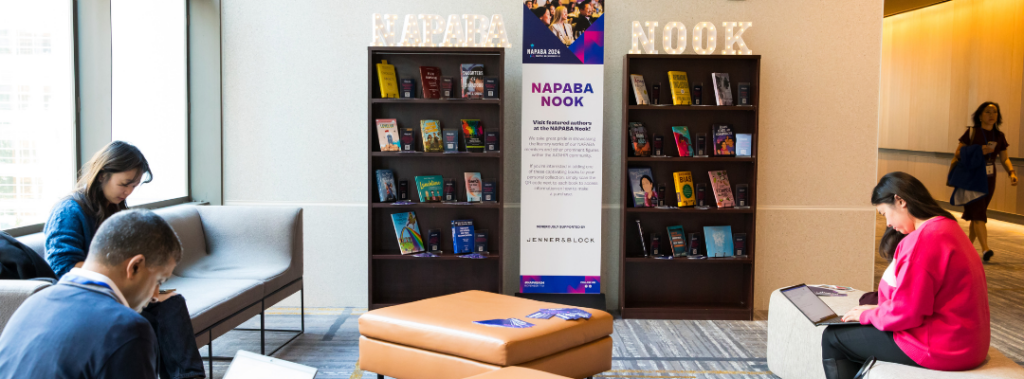
| For Immediate Release: August 20, 2025 | Contact: Rahat N. Babar, Deputy Executive Director |
2025 NAPABA President’s Award Recipient: Susman Godfrey LLP
WASHINGTON — The 2025 National Asian Pacific American Bar Association (NAPABA) President’s Award will be presented to Susman Godfrey LLP. The award recognizes the firm’s steadfast commitment to uplift the legal profession and the rule of law in the United States.
The NAPABA President’s Award is given annually to individuals or entities who demonstrate an exceptional commitment to NAPABA and the broader legal community.
“I am proud to confer the President’s Award to Susman Godfrey LLP,” said NAPABA President Thy Bui. “As both a legal professional and civil rights organization with a core commitment to diversity and upholding the rule of law, NAPABA knows the vital importance of standing up against the wave of attacks against the legal community and upholding our values. Susman Godfrey LLP not only shares our commitment but also lives it. I am thrilled to commend the firm for its unwavering focus to defend the legal profession and the rule of law when it mattered the most.”
Susman Godfrey LLP is a nationally leading boutique litigation law firm founded in Houston, Texas. Today, with additional offices in New York, Los Angeles, and Seattle, the firm has a reputation as one of the “nation’s most impressive – and most feared – litigation boutiques.” Kalpana Srinivasan, a 2014 recipient of the NAPABA Best Under 40 Award, and Vineet Bhatia lead the firm as managing partners.
Earlier this year, the current Administration issued an executive order against Susman Godfrey LLP and endeavored to strip the firm’s ability to function. The executive order, among other things, criticized the firm’s espousal of diversity, equity, and inclusion efforts. It also disagreed with the firm’s work pertaining to elections. For example, in April 2023, Susman Godfrey LLP secured a $787.5 million settlement for its client, Dominion Voting Systems, to resolve Dominion’s claim of defamation against a prominent media outlet for its statements pertaining to the 2020 presidential election.
Susman Godfrey LLP challenged the executive order, and in June 2025, the firm succeeded when the District Court permanently enjoined the executive order. The court found that the executive order amounted to “unlawful retaliation…for activities that are protected by the First Amendment, including [the firm’s] representation of certain clients…and its expression of its beliefs regarding diversity.” An independent judiciary, as the court recognized, presumes an “informed, independent bar,” which is a “necessity for the rule of law.”
We agree. The firm, in advancing those principles, currently represents the American Bar Association in a lawsuit against the current Administration that challenges the unwarranted attacks against lawyers and law firms.
NAPABA congratulates Susman Godfrey LLP as this year’s recipient of the NAPABA President’s Award, which will be bestowed on Friday, November 7, 2025, during the President’s and Trailblazer Awards Reception at the 2025 NAPABA Convention in Denver, Colorado.
###
The National Asian Pacific American Bar Association (NAPABA) represents the interests of over 80,000 Asian Pacific American (APA) legal professionals and over 90 national, state, and local APA bar associations. NAPABA is a leader in addressing civil rights issues confronting Asian American, Native Hawaiian, and Pacific Islander communities. Through its national network, NAPABA provides a strong voice for increased diversity of the federal and state judiciaries, advocates for equal opportunity in the workplace, works to eliminate hate crimes and anti-immigrant sentiment, and promotes the professional development of people of all backgrounds in the legal profession.









